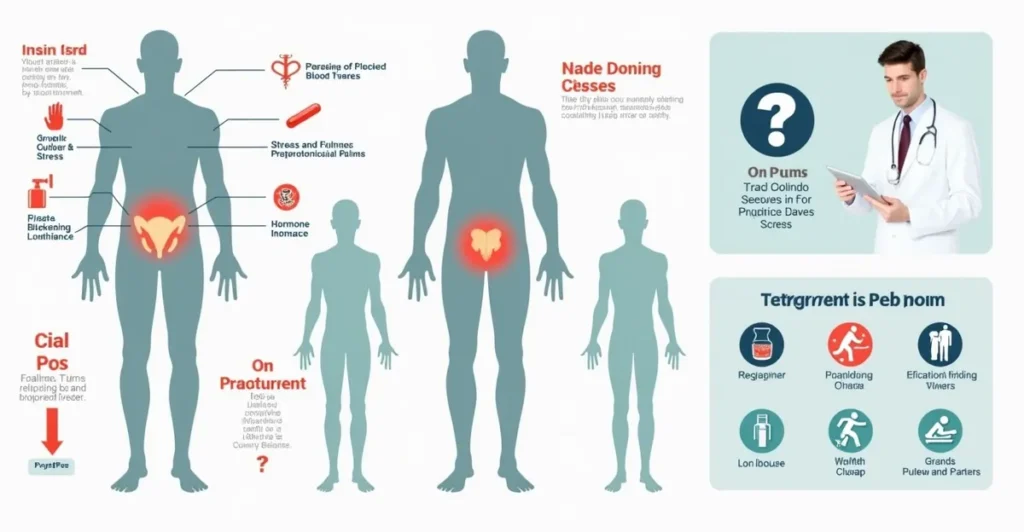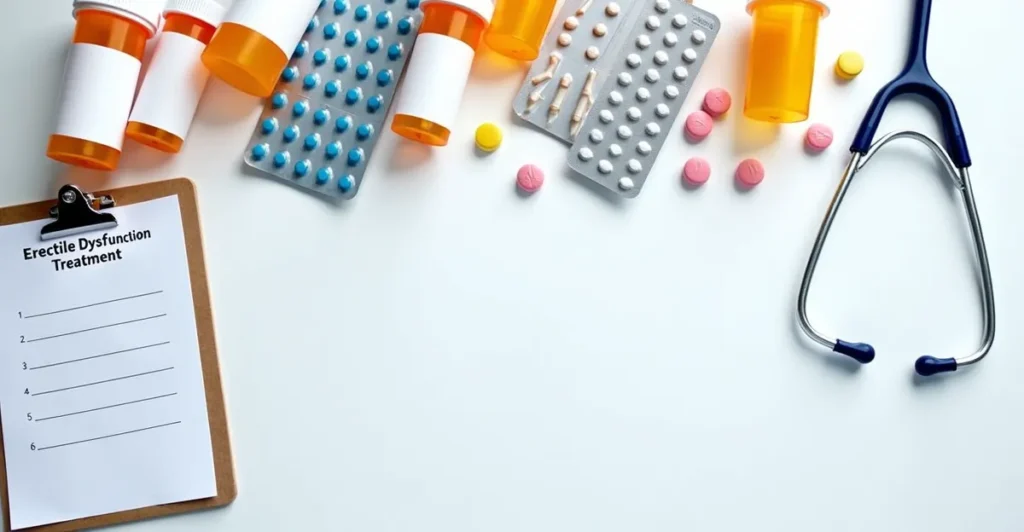
Introduction
Erectile dysfunction (ED) is the most common medical problem affecting millions of men in the world. For most men, ED is a problem that gradually occurs over a period of time and is defined as the ability to get an erection or the inability to hold it long enough for a mutually satisfactory sexual performance. Though this can be a distressing condition to have, you should know that effective treatments exist. Medication is one of the principal ways to treat ED. In this in-depth resource, we delve into erectile dysfunction drugs including the various types, how they work, and what to consider when taking the medication.
Erectile Dysfunction - what is it?
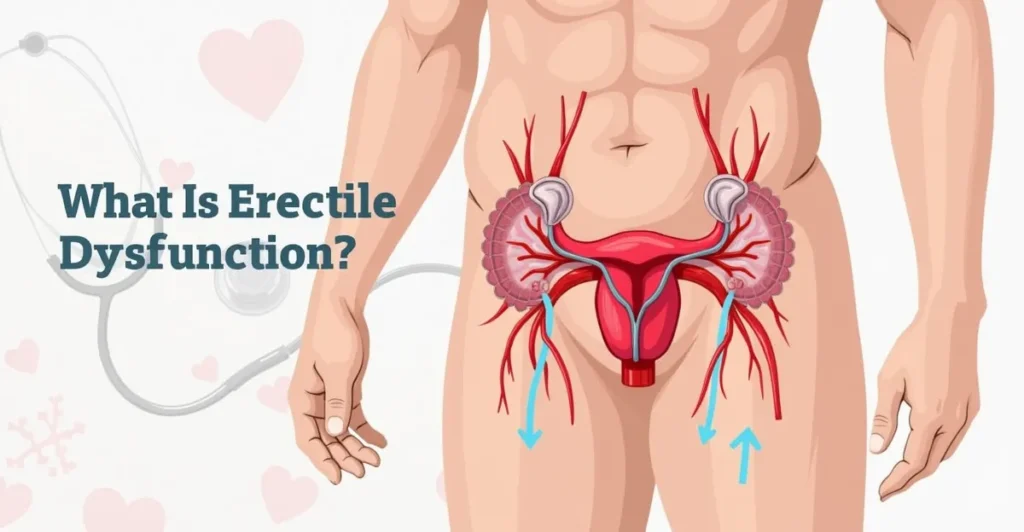
Before we go into the drugs, let’s discuss what erectile dysfunction is and what might cause it to happen.
Definition of Erectile Dysfunction
Erectile dysfunction (ED) is a continuous inability to get or sustain an erection that is solid adequate for sex. Notably, occasional trouble getting an erection is not unusual and doesn’t necessarily suggest ED. If it’s been continuing for a long time, however, you may want to visit a doctor.
Etiology of Erectile Dysfunction
There are a number of potential causes for ED:
- Physical ailments: Heart disease, diabetes, overweight/obesity, hypertension
- Mental: Stress, anxiety, depression
- Personal habits: Smoking, heavy alcohol use, inactive lifestyle
- Medications: Some anti-depression medications, blood pressure medicines.
- Age – Older men are more likely to develop ED.
Identifying the cause of your ED is important for treatment – you may need medication.
Varieties of ED Medication
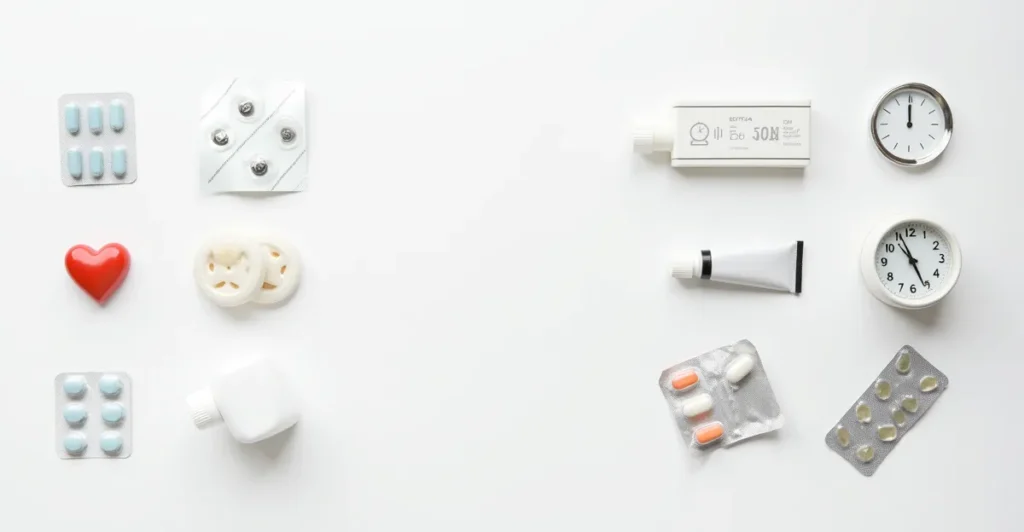
There are a variety of medications on the market to treat ED, and they are not all the same. Now let’s take a look at some of the more popular ones:
PDE5 Inhibitors
PDE5 inhibitors these are the most commonly prescribed medications for ED. They do so by increasing the effects of nitric oxide, a natural chemical in the body, which relaxes muscles in the penis and increases blood flow.
The most frequent PDE5 inhibitors are:
- Sildenafil (Viagra): The first oral ED drug approved by the FDA (in 1998) to be taken 30-60 minutes prior to intercourse.
- Tadalafil (Cialis): Also causes headache in a portion of users, as well as aching in the muscles and back. It can last up to 36 hours and has daily low-dose options.
- Vardenafil (Levitra): Works similarly to sildenafil, duration of action and effect similar as well.
- Avanafil (Stendra): A newer drug with similar effects to other PDE5 inhibitors, but may work faster.
Other Medication Options
PDE5 inhibitors are the most used, but other medications are available for the treatment of ED:
- Alprostadil: Sold as an injection or as a suppository, it causes the blood vessels to relax and the penis to fill with blood.
- Testosterone Replacement Therapy: If a man has low testosterone levels, augmenting this hormone may help him achieve better erections.
The Mechanism of Erectile Dysfunction Medications
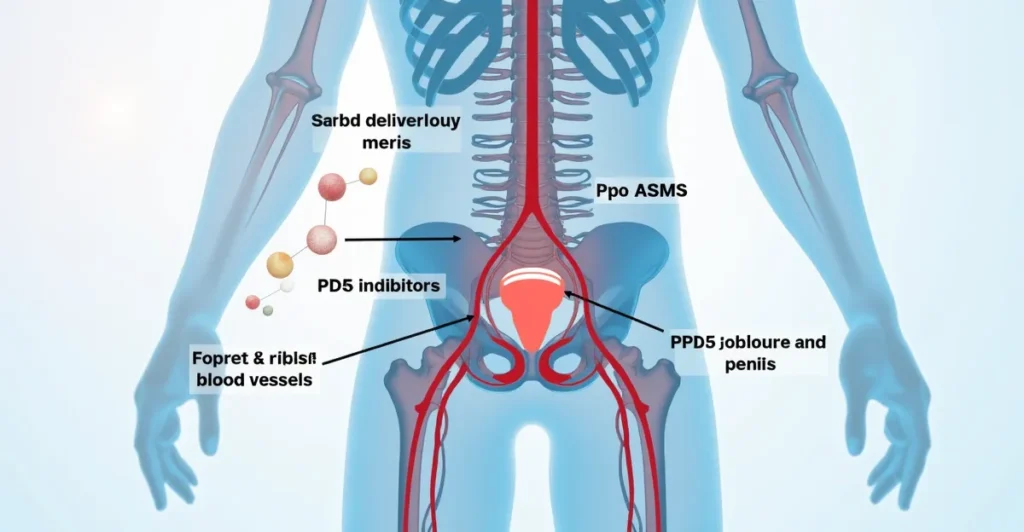
Knowing how ED drugs work can help you make an informed decision about treatment for ED.
The Role of Blood Flow
When you have an erection, the flow of blood to your penis is increased, and fills up sponge-like areas in the penis called the corpora cavernosa. Drugs for erectile dysfunction function predominantly by increasing blood flow to these chambers.
PDE5 Inhibitors Mechanism
PDE5 inhibitors potentiate the effect of nitric oxide, a molecule which promotes the erections. Here is a simplified explanation of what they do:
- The penis releases nitric oxide during sexual stimulation.
- Nitric oxide also increases the production of cGMP, which in turn relaxes smooth muscles and dilates blood vessels.
- PDE5 inhibitors, such cGMP’s degradation is prevented allowing its erection-maintaining effects to be prolonged.
Keep in mind that these drugs don’t cause spontaneous erections — you have to be aroused for them to work.
Efficacy and Graduation Rates
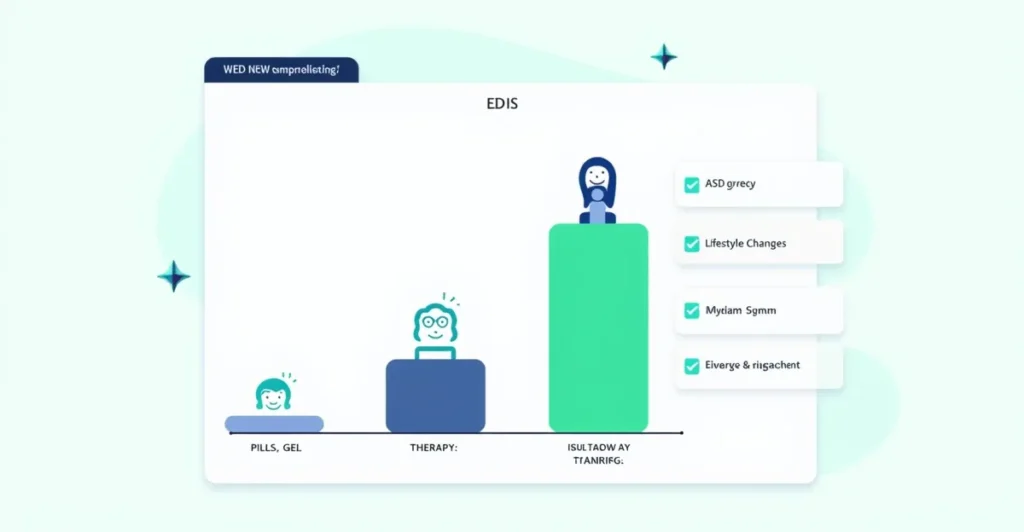
ED drugs can work differently for different people, and what works for one person may not work for another. But PDE5 inhibitors have been associated with high rates of success in clinical studies and in practice.
- Sildenafil: Published success rates range from 70-80% in different patient populations.
- Tadalafil Clinical trials have shown its effectiveness in 81 percent of men taking it as compared with 35-40 percent of men taking placebo.
- Vardenafil: Response rates of 80% have been reported.
- Avanafil: Research shows it to work for approximately 70% of men with ED.
As always, results may vary and it may take a while to find the right medication and dosage for you.
Things to think about before taking ED medications
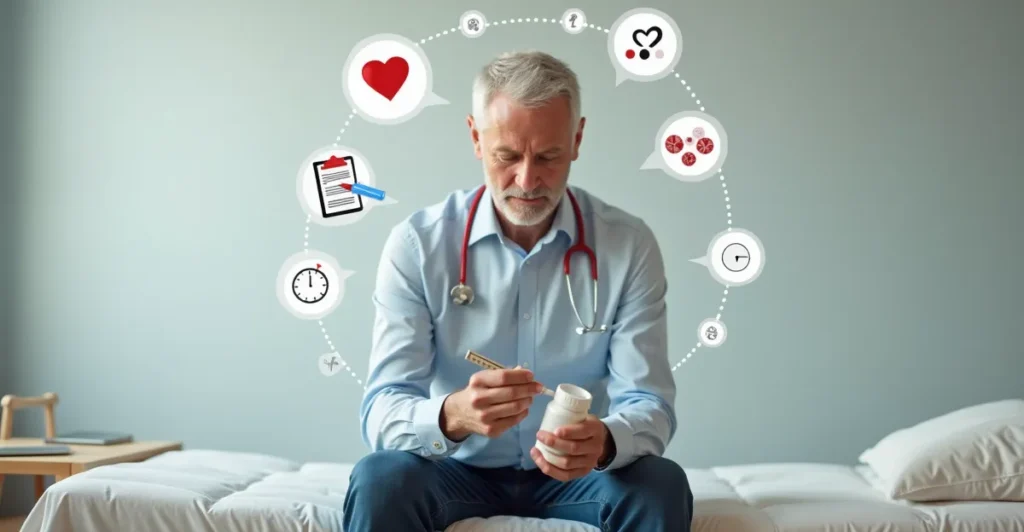
Erectile dysfunction drugs may work well for some, there are important reasons why you should think again before signing up for treatment.
When to consult with a medical professional
It is very important to talk to a healthcare provider before taking any erectile dysfunction drugs. They can:
- Assess your general health and any pre-existing health problems
- Check for drug interactions with the list of drugs that you’re currently taking
- Decide on the best plan of action for YOUR individual case
Potential Side Effects
As with all drugs, erectile dysfunction medications can cause side effects. The side effects of PDE5 inhibitors are generally mild and similar across the class.
- Headache
- Flushing
- Nasal congestion
- Back pain
- Indigestion
Most side effects are mild and go away. But one should be alert for more problematic, although less frequent, side effects like priapism (an erection that lasts more than four hours) or sudden vision loss or hearing loss.
Contraindications
Some health issues or drugs may not be safe and effective while taking ED drugs. These include:
* Nitrates used for chest pain
- any serious heart or liver problems
- New stroke or heart attack
- Uncontrolled high or low blood pressure
Your healthcare provider will also evaluate your medical history to determine whether ED medication is safe for you.
Lifestyle Changes in Addition to Medication

Though ED drugs are effective, our medical experts warn that they should be used cautiously because they can cause potentially serious side effects. Another concern is that some men who use ED meds recreationally mix them with other, illicit drugs. “People think ED drugs will make them invincible,” says Joel J. Heidelbaugh, M.D., the interventional studies director of the family medicine residency program at the University of Michigan.
- Regular physical activity: Enhances overall cardiovascular health and blood flow
- Balanced nutrition: Lowers the chance of developing some causes of ED
- Coping with stress: Practices such as meditation can lower anxiety-induced ED
- Cut back on alcohol and stop smoking: Both can cause ED
Alternative Treatments
For some men, ED drugs won’t work or may not be safe. Other treatment options are:
- Vacuum erection devices
- Penile implants
- Psychotherapy (counseling) for psychological causes of ED
- Shockwave therapy (a newer treatment, which is experimental)
If medication is less than ideal for you, your doctor may address these alternatives.
Conclusion

Erectile dysfunction drugs have changed the way that we treat ED, and they have given hope and restored quality of life to millions of men. Although these drugs can be very effective, it’s important to seek treatment with a healthcare practitioner. They may be able to identify what is causing your ED, suggest the best treatment for you, and track your progress.
And, of course, bear in mind that ED is not only common, but it’s also treatable. Results: Many men can successfully manage their ED using the right treatment approach, whether through medication, lifestyle modifications, and/or open communications with their healthcare provider and partner, and achieve a healthy and fulfilling sex lifeEditors’ Note: Title of this Supplement.
If you notice symptoms of ED, don’t be afraid to contact your doctor. In other words, they can give you individualized advice and guide you through the numerous treatment options, which can range from medication to erectile dysfunction medication.
Contact Us if you have any questions or concerns

